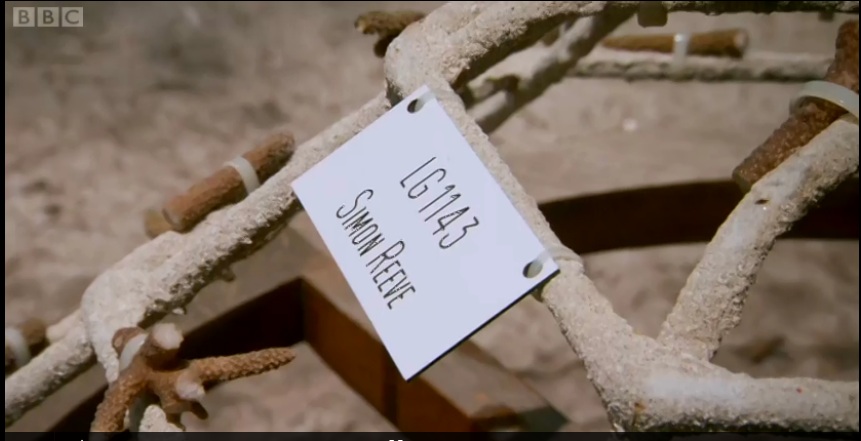 The statistics are shocking and protecting the coral reefs is something that needs to begin as soon as possible. Some communities are making an effort, for example Simon Reeve on a trip around the Indian Ocean visited The Maldieves where a small increase in ocean temperature is damaging coral reefs. Small scale projects are being run accross the coast line but this particular one involved a metal frame being built which then has live pieces of coral attached before being transfered to a protected area of water. The meta frames can be sponsored by tourists and locals who choose to visit the project. Eventually a web of the metal frames is formed and the coral will stretch across a vast area. The project was run by a local couple who have decided to take protecting the coral in their local area into their own hands. Now more people need to start doing the same.
The statistics are shocking and protecting the coral reefs is something that needs to begin as soon as possible. Some communities are making an effort, for example Simon Reeve on a trip around the Indian Ocean visited The Maldieves where a small increase in ocean temperature is damaging coral reefs. Small scale projects are being run accross the coast line but this particular one involved a metal frame being built which then has live pieces of coral attached before being transfered to a protected area of water. The meta frames can be sponsored by tourists and locals who choose to visit the project. Eventually a web of the metal frames is formed and the coral will stretch across a vast area. The project was run by a local couple who have decided to take protecting the coral in their local area into their own hands. Now more people need to start doing the same.
The specifics of what damages the coral may not be the most interesting of topics however a number of the reasons for the problems are as follows; firstly ocean acidification. Increasing carbon dioxide emissions affect not only species on land but also those under the water level as well. The ocean has absorbed approximately a third of all anthropogenic carbon emissions in recent years. Increasing levels of carbon dioxide in the water causes the pH to decrease, therefore making the ocean more acidic. The coral struggles to survive in the more acidic conditions and they are not the only organisms to suffer. Due to the decrease in the pH the availability of Carbonite ions is reduced It has been shown that Carbonite ions play an important role in the forming of shellfish, plankton and of course coral.
 As previously mentioned the damage to the coral in The Maldives was largely due to an increase in ocean temperatures. Coral are very sensitive to even slight changes in temperature. Unfortunately the global sea temperatures around the world are increasing at an alarming rate therefore damaging the coral. When temperatures rise too high coral undergoes a process called Coral Bleeching. The increase in temperature causes autoimmune reactions which causes the coral to expel the algae which usually live within them and provide up to 80% of their energy. This is what gives the coral a white and pale colour.
As previously mentioned the damage to the coral in The Maldives was largely due to an increase in ocean temperatures. Coral are very sensitive to even slight changes in temperature. Unfortunately the global sea temperatures around the world are increasing at an alarming rate therefore damaging the coral. When temperatures rise too high coral undergoes a process called Coral Bleeching. The increase in temperature causes autoimmune reactions which causes the coral to expel the algae which usually live within them and provide up to 80% of their energy. This is what gives the coral a white and pale colour.
The internet is exploding with details of damage to coral reef and as awareness of the issue rises information will be more and more available. An excellent website to visit is: http://www.coral.org/ and here is the recent BBC article which went some way to inspiring this piece: http://www.bbc.co.uk/news/science-environment-23773672
TR
geog on
No comments:
Post a Comment